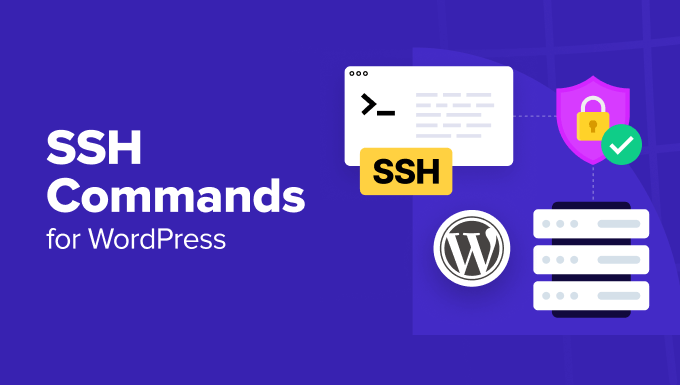Managing your money effectively can be challenging, especially if you don’t have a solid financial plan. Money management involves tracking and optimizing your income, expenses, and investments to ensure you meet your financial goals. In this ultimate guide, we’ll share effective strategies, investment tips, and expense reduction methods to help you manage your money better.
1. Understanding the Basics of Money Management
Before you start managing your money, it’s essential to understand the basics. The first step is to calculate your net worth, which is the total value of your assets minus your liabilities. This will help you understand your financial standing and identify areas where you can improve.
Another essential aspect of money management is setting financial goals. Having clear objectives can help you stay focused and motivated to achieve them. It’s also crucial to establish a financial plan to achieve your goals, including creating a budget and prioritizing expenses.
2. Creating a Budget: Tracking Income and Expenses
Creating a budget is the foundation of effective money management. The first step is to track your income and expenses to understand where your money is going. Once you have a clear picture, you can start prioritizing expenses and reducing unnecessary costs.
A budget should include all your income sources, such as your salary, rental income, or side hustle earnings, and all your expenses, such as rent, utilities, groceries, entertainment, and debt payments. The goal is to ensure that your expenses don’t exceed your income and that you have money left over for savings and investments.
3. Reducing Expenses: Tips for Saving Money
Reducing expenses is a critical aspect of effective money management. Here are some tips to help you save money:
- Cut back on discretionary spending: This includes eating out, shopping, and entertainment.
- Negotiate bills: Shop around for better deals on utilities, cable, and insurance. You can also negotiate with service providers for better rates.
- Use coupons and discounts: Look for coupons and discounts for groceries, restaurants, and other services.
- Use credit cards wisely: Use credit cards for convenience and to earn rewards, but pay off the balance in full every month to avoid interest charges.
- Avoid unnecessary subscriptions: Cancel subscriptions for services or products you don’t use regularly.
4. Investing for the Future: Tips for Building Wealth
Investing is an excellent way to build wealth and achieve financial freedom. Here are some tips to help you get started:
- Start early: The earlier you start investing, the more time your money has to grow.
- Diversify your portfolio: Invest in a mix of stocks, bonds, and other assets to spread out risk and maximize returns.
- Use tax-advantaged accounts: Consider investing in tax-advantaged accounts, such as a 401(k), IRA, or HSA, to save on taxes and grow your money faster.
- Keep fees low: Look for low-cost investment options, such as index funds and ETFs, to minimize fees and expenses.
5. Debt Management: Tips for Paying Off Debt
Managing debt is an essential aspect of effective money management. Here are some tips to help you pay off debt:
- Create a debt repayment plan: Prioritize debts with the highest interest rates and work towards paying them off first.
- Consolidate debt: Consider consolidating high-interest debt into a single loan or credit card with a lower interest rate.
- Negotiate with lenders: You may be able to negotiate lower interest rates or payment plans with your lenders to help you pay off debt faster.
- Avoid taking on new debt: Focus on paying off your existing debt before taking on new debt.
6. Retirement Planning: Tips for a Secure Future
Retirement planning is essential to ensure a secure financial future. Here are some tips to help you plan for retirement:
- Start saving early: The earlier you start saving for retirement, the more time your money has to grow.
- Contribute to a retirement account: Consider contributing to a 401(k), IRA, or other retirement account to take advantage of tax benefits and employer contributions.
- Estimate your retirement expenses: Calculate how much you’ll need to live comfortably in retirement, including expenses like housing, healthcare, and leisure activities.
- Adjust your savings and investment strategy as you approach retirement age: As you get closer to retirement age, adjust your investment strategy to reduce risk and ensure your savings will last throughout your retirement.
7. Protecting Your Assets: Insurance and Estate Planning
Protecting your assets is essential to ensure financial security. Here are some tips to help you protect your assets:
- Purchase insurance: Consider purchasing health, life, disability, and homeowners insurance to protect yourself and your assets from unexpected events.
- Plan your estate: Plan for how your assets will be distributed after you pass away, including creating a will, setting up trusts, and designating beneficiaries.
- Review and update your insurance and estate plan regularly: Review your insurance and estate plan regularly to ensure they align with your current needs and objectives.
8. Tax Planning: Tips for Minimizing Tax Liability
Tax planning is an essential aspect of effective money management. Here are some tips to help you minimize your tax liability:
- Maximize your deductions and credits: Take advantage of deductions and credits to reduce your taxable income and lower your tax bill.
- Contribute to tax-advantaged accounts: Consider contributing to tax-advantaged accounts, such as a 401(k), IRA, or HSA, to reduce your taxable income and save on taxes.
- Hire a tax professional: Consider hiring a tax professional to help you navigate complex tax laws and ensure you’re taking advantage of all available deductions and credits.
9. Managing Your Credit Score: Tips for Good Credit
Your credit score is an essential aspect of effective money management. Here are some tips to help you manage your credit score:
- Check your credit report regularly: Review your credit report regularly to ensure it’s accurate and dispute any errors.
- Pay your bills on time: Pay your bills on time to avoid late fees and negative marks on your credit report.
- Keep your credit utilization low: Keep your credit utilization (the amount of credit you’re using compared to your credit limit) low to maintain a good credit score.
- Avoid opening too many new accounts: Avoid opening too many new accounts at once, as this can negatively impact your credit score.
10. Final Thoughts on Money Management
Effective money management involves tracking and optimizing your income, expenses, and investments to achieve your financial goals. By creating a budget, reducing expenses, investing wisely, managing debt, planning for retirement, protecting your assets, minimizing your tax liability, and managing your credit score, you
can take control of your finances and achieve long-term financial stability. Remember to review your financial plan regularly and make adjustments as needed to ensure you’re on track to achieve your goals.
Conclusion
In conclusion, managing your money effectively is crucial to achieving financial stability and reaching your financial goals. By following the tips and strategies outlined in this ultimate guide to money management, you can take control of your finances and achieve long-term financial success. Remember, effective money management involves creating a budget, reducing expenses, investing wisely, managing debt, planning for retirement, protecting your assets, minimizing your tax liability, and managing your credit score. By implementing these strategies and reviewing your financial plan regularly, you can achieve your financial goals and secure your financial future.
FAQs
-
What is money management? Money management is the process of tracking and optimizing your income, expenses, and investments to achieve your financial goals.
-
Why is money management important? Effective money management is important because it helps you take control of your finances, achieve long-term financial stability, and reach your financial goals.
-
What are some effective money management strategies? Effective money management strategies include creating a budget, reducing expenses, investing wisely, managing debt, planning for retirement, protecting your assets, minimizing your tax liability, and managing your credit score.
-
How do I create a budget? To create a budget, start by calculating your monthly income and expenses. Then, prioritize your expenses and allocate funds accordingly to ensure you’re living within your means.
-
How often should I review my financial plan? You should review your financial plan regularly, at least once a year or whenever your financial situation changes significantly, to ensure you’re on track to achieve your goals.
A website can help increase awareness, attract donors and volunteers, and streamline communication and operations.
Some key benefits include increased visibility and credibility, improved fundraising efforts, and more efficient operations.
Yes, in today’s digital age, having a website is a necessity for non-profit organizations that want to reach a wider audience and achieve their goals.
The cost of creating a website for a non-profit organization can vary depending on factors like the complexity of the website, the design, and the features required. However, there are many affordable website builders and platforms available that can help non-profits create a website without breaking the bank.
Yes, a website can make it easier for people to donate to a non-profit organization by providing a secure and convenient online donation platform. Moreover, a website can also provide information about the organization’s impact and achievements, which can inspire people to support the cause.
A non-profit organization can ensure that its website is accessible to everyone by designing the website with accessibility in mind, using tools like alt text, captions, and screen readers, and testing the website with users who have disabilities.
Some common security and privacy concerns for non-profit organizations include data breaches, unauthorized access, and cyber attacks. NPOs may handle sensitive information such as donor data, financial records, and personal information of beneficiaries. It is essential for NPOs to take measures to protect this data, such as using secure hosting, encryption, and two-factor authentication. NPOs should also have clear privacy policies that outline how they collect, use, and share data, and obtain consent from individuals when necessary.
Yes, a website can help a non-profit organization connect with volunteers by providing information about volunteer opportunities and allowing people to register online. Moreover, a website can also provide resources and tools to help volunteers get involved and stay engaged with the organization.
It’s important to consider the organization’s goals and audience, as well as the website’s design, functionality, and content.
By incorporating relevant keywords, optimizing website structure and content, and regularly updating and promoting the website.
You can register/purchase a domain and web hosting from here:  https://kawsarmahmud.com/go/bluehost or
https://kawsarmahmud.com/go/bluehost or
es, we can definitely assist you in building your non-profit organization website. We understand the importance of having a strong online presence for your cause and we are here to help you achieve that. We offer website design and development services that can be tailored to your specific needs and budget. Our team of experts can work with you to create a website that not only looks great but also has all the necessary features and functionality to support your mission. Contact us to learn more about how we can help you build your non-profit organization website.
The post Ultimate Guide to Money Management: Effective Strategies, Investment Tips, and Expense Reduction Methods appeared first on Kawsar Mahmud.


























